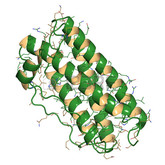Biosimilars
Biosimilar User Fee Act reauthorization
On 16 September 2016, the US Food and Drug Administration (FDA) released the Biosimilar User Fee Act II (BsUFA II) performance goals letter, attracting support from industry associations.
FDA approves biosimilar etanercept Erelzi
The US Food and Drug Administration (FDA) announced on 30 August 2016 that it had approved Sandoz’s biosimilar version of Amgen/Pfizer’s arthritis blockbuster Enbrel (etanercept).
Positive phase III results for Sandoz etanercept biosimilar
Results of a study of Sandoz’s etanercept biosimilar (GP2015) compared to Amgen/Pfizer’s arthritis blockbuster Enbrel (etanercept) have shown ‘equivalent efficacy’, according to the company.
Canadian approval for etanercept biosimilar
Merck Canada announced on 12 September 2016 that it had received approval for its etanercept biosimilar Brenzys (SB4) from Health Canada – the first subcutaneous anti-tumour necrosis factor (anti-TNF) biosimilar available in Canada.
Study supports interchangeability of TNF-α biosimilars
For years, the costs of drugs have been rising. Prescription drug spending in the US rose by 12.6% in 2014 and almost 1 in 4 Americans report difficulty affording their prescriptions. A familiar situation in many countries, the escalating costs of drugs make them unaffordable for a large part of the world.
More positive phase I results for Coherus pegfilgrastim biosimilar
US-based biosimilars developer Coherus BioSciences (Coherus) announced on 11 July 2016 that follow-on results from a phase I study of its candidate pegfilgrastim biosimilar (CHS 1701) were positive.
Mylan and Biocon submit trastuzumab biosimilar to EMA
Mylan and Biocon announced on 25 August 2016 that the regulatory submission for their proposed trastuzumab biosimilar (MYL-1401O) had been accepted for review by the European Medicines Agency (EMA).
Biosimilars for use in fertility treatment
As patents expire on originator products, there is increasing interest in developing biosimilars globally. Authors Raoul Orvieto and David Seifer from the Sheba Medical Center and Sackler Faculty of Medicine of the Tel Aviv University in Israel investigated biosimilars used in fertility treatment [1].
Biosimilars applications under review by EMA – August 2016
The European Medicines Agency (EMA) is the body responsible for approval of biosimilars within the European Union (EU). A legal framework for approving biosimilars was established in 2003. Approval of biosimilars is based on an abbreviated registration process, which allows biosimilars manufacturers to provide a reduced package of information compared to originator drugs, provided they can prove ‘similarity’ to the originator or reference drug.
Safety and efficacy of Remsima in IBD patients in clinical practice
Researchers from Spain presented results from a study of the use of the infliximab biosimilar Remsima in ulcerative colitis disease patients in clinical practice after six months treatment.












